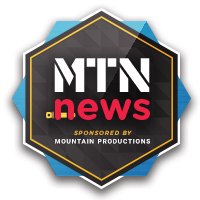Deciding which company to hire for event staging and equipment is a daunting task. With everything to consider, it’s easy to find yourself frustrated and sporting a few more gray hairs than when you started. We understand the importance of being prepared and well educated even prior to contacting any company for a quote. In hopes to offer some tips and helpful hints to prepare for your next event, I talked to Mountain Production staging and rigging salesmen Tim Evans, Marty Wesstrom, Pat McGlynn and Jeff Sivick. Their 25+ combined years of experience has equipped them with helpful advice that we would like to share with you (in no particular order)…
1. Know your rigging plot.
One of the most significant ways to be prepared for choosing the appropriate stage for your event is to know your rigging plot. It may seem like a no-brainer, but it’s easy to bypass this step and go straight to researching stage designs. It’s crucial to know the production equipment and how much load bearing capacity you will need from your grid. This will help you hone in on your available staging options and also save you a headache later on. For example, let’s say you skipped this step, and went straight to the vendor inquiring about an SL-250 mobile stage. It seems to be everything you need, you like the small footprint and ease of installation. Perfect. Fast forward a few weeks after you confirmed the SL-250 for your event, and you find out that the production equipment exceeds the 250s load bearing capacity. Now you have to backtrack and start back at the beginning (probably pulling your hair out at the same time).
2. Safety, supervisors & weather-ready – do they meet your expectations?
And everyone’s expectations for the quality of these 3 assets should be the same: you need the best safety, supervisors and weather protection in the industry. On our mobile stages, we have taken certain actions to enhance stage elements, making them more ready for an emergency weather situation. For example, we have modified the backdrop on our autostages to rig to pipes, allowing for the backdrop to simply be lowered rather than cut down when heavy wind hits. Not only is this more convenient, but it also saves the scrim from cuts and tears. Ask the following questions to yourself: Does the staging company you are interested in have a distinct and effective wind plan in the event of inclement weather? Are the supervisors on site knowledgable, helpful and efficient leaders? Is the integrity and engineering of the stage compliant with industry standards and even furthermore, do you require stamped blueprints? This last question leads us to our next tip…
3. Do you require stamped blueprints?
Here at Mountain Productions, our lead engineer (and Professional Engineer) Paul Serkosky is able to provide certified stamped drawings for our stages. With news of recent stage collapses and compromised builds, inspectors and local building codes could become alot more strict and thorough (and they already have). Having a stamped drawing can give you the peace of mind and certified proof of the integrity of a structure. Quite frankly, the only people who provide pushback when asked about stamped drawings are those who cannot provide them or who aren’t concerned with the safety of a job site.
4. Insurance.
Simple enough, make sure you have accounted for the proper insurance when planning your event. Remember this in your budget, and DO NOT settle for anything less than the proper coverage for your event.
5. Know the access points to your site.
At Mountain Productions, we’ve set up staging on sand, asphalt, gravel, grass, etc. (We’ve even built underwater!) It’s important to be aware of the environment and not only what you are building on, but also what you have to drive through. Be aware that there has to be a sufficient access point(s) for trucks and trailers to load in. Many times events are set up in stadiums or venues with well kept and maintained turf. For these situations, you don’t want to forget the groundcover and end up with trucks tearing up the turf. Mountain has countless sq feet of Terratrak Plus groundcover that protects the existing turf and withstands the weights of forklifts and heavy industry vehicles.
6. Don’t just take it from us, do your research!
We encourage all event planners to be informed of their staging options and different companies. For example, there are many manufacturers providing mobile staging, but some mobile units offer better engineering, greater rigging capacity, etc. than others. Here at Mountain, we have aligned with Stageline for our fleet of mobile stages. After extensive research throughout the years, we have found that the SL line of autostages provides the best engineering and greatest variety of load capacity. Conduct your own research and be thorough.
At the end of the day, we hope that you take the necessary steps to prepare yourself for your next event. Our salesmen at Mountain Productions are always eager and willing to help clients meet their end goal, and can offer assistance when making some of the decisions discussed above. If you’d rather a face to face meeting to pull your event together, our staff is more than willing to travel and help plan your next event in the comfort of your own office. In such a stress filled industry as ours, do yourself a huge favor and educate, research and prepare yourself upfront before diving in head first to your next project.



